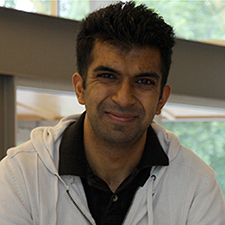FIMS News
Contact Information
FIMS Communications
Becky Blue
Email
519-661-2111x88493
FIMS & Nursing Building
Rm 2060C
Alumni in partnership with FIMS
In this new section of the FIMS Alumni Newsletter, we profile gifts made to the faculty by alumni, family of alumni, and other friends of FIMS. We’ll highlight well-established gifts and scholarships along with new ones as they develop. We can only feature a couple in each issue, but we hope you’ll be inspired to read this section each time to see how alumni and friends have generously left their mark on the FIMS community.
Askunessippi (Antler River) Scholarship
Established by an anonymous member of the MLIS Class of 1992
The Antler River Scholarship was established in 2019 and provides annual scholarship of $1000 to help fund the education of a student entering the Master of Library and Information (MLIS) program. Preference is given to an Indigenous student (First Nations, Métis or Inuit). This scholarship was established with a generous gift from an alumnus of the MLIS Class of 1992, though the donor wishes to remain anonymous.
In light of Western’s commitments to the goals laid out under Truth and Reconciliation, FIMS is particularly appreciative of a scholarship that aims to address historical and continuing inequalities in access to post-secondary education for Indigenous students.
“To meet the TRC goals, we need to learn,” says MLIS Graduate Chair Grant Campbell. “And to learn, we need the voices of Indigenous persons in our classrooms: voices that can teach us, as scholars and instructors, what happens when our professional tools and skills and theories meet up with Indigenous perspectives, traditions and concerns.”
FIMS Dean Lisa Henderson notes that the scholarship represents one part of a wider effort by the faculty to address the TRC.
“At FIMS we have a number of initiatives that speak to Indigenization and decolonization, including a developing archive for ‘Smoke Signals,’ Dan and Mary Lou Smoke’s longstanding Indigenous program at Radio Western, an Indigenous Contexts course for MLIS students taking shape in consultation with community members and librarians, and a faculty search for an Indigenous colleague scheduled to take place in Fall 2020,” says FIMS Dean Lisa Henderson. The Askunessippi (Antler River) Scholarship is a beautiful expression of our emerging commitments; we are so appreciative and look forward to introducing its first recipient in our Fall Newsletter.”
Askunessippi means Antler River, which is the name of the Thames River in the Anishnaabe language. The name comes from a time when a very influential and highly regarded leader of the community lived at the mouth of the river at Lake St. Clair or the Lake of the Swirling Eddies. The area held a prominent place for Treaties and gatherings. The descendants of the great leader now live on Walpole Island.
If you would like to learn more about the Askunessipppi (Antler River) Scholarship, or how you can help FIMS support Indigenous admission to MLIS, please contact Maija Craig at mcraig28@uwo.ca. You can also make a gift to the Askunessippi (Antler River) Scholarship here: www.westernconnect.ca/Askunessippi
Annual Fund Gift of $500 to provide a bursary for an International Student
Established by Bhavin Prajapati in 2020  Bhavin Prajapati (MHIS’16) is quick to talk about how much he grew while he was a student in the Master of Health Information Science program at FIMS, and he’s equally quick to credit much of his growth to his experiences with international students. Recognizing that international students contribute as much to the community as they receive, Bhavin was looking for a way to help more of them reach their goals.
Bhavin Prajapati (MHIS’16) is quick to talk about how much he grew while he was a student in the Master of Health Information Science program at FIMS, and he’s equally quick to credit much of his growth to his experiences with international students. Recognizing that international students contribute as much to the community as they receive, Bhavin was looking for a way to help more of them reach their goals.
“There are a lot of factors that affect graduate student wellness, especially for students in a new country,” he says. “Learning from my own experience with the mental health challenges I faced - burnout, depression and anxiety – [I know that] just removing even the tiniest bit of friction can go a long way for any graduate student. While I didn't face a financial burden, I knew plenty who did. So thinking about those students and their experiences was an important consideration.”
Bhavin points to the current province-wide budgetary challenges facing universities, as well as what he sees as a surge of rhetoric against academia as an institution, as one reason he is inspired to establish the bursary now. He wants to help international graduate students in the MHIS program get the best educational experience that they can.
“I try to act (with plenty of failings) around my personal code of ‘deep empathy as an instrument of service’. Providing a bursary is one form of service that best aligns with what I can do today to help students,” he says.
Bhavin’s bursary will be awarded to an international student in the MHIS program who demonstrates financial need beginning in 2020.






